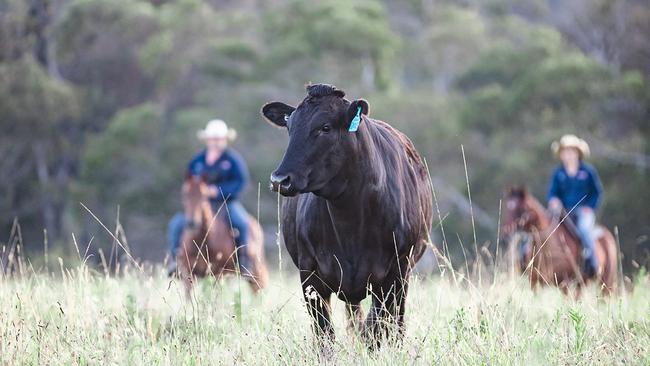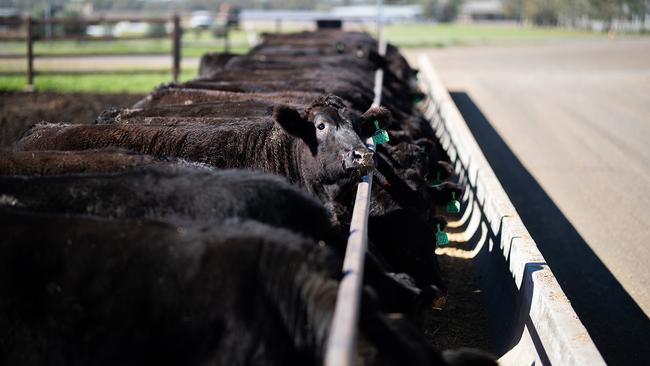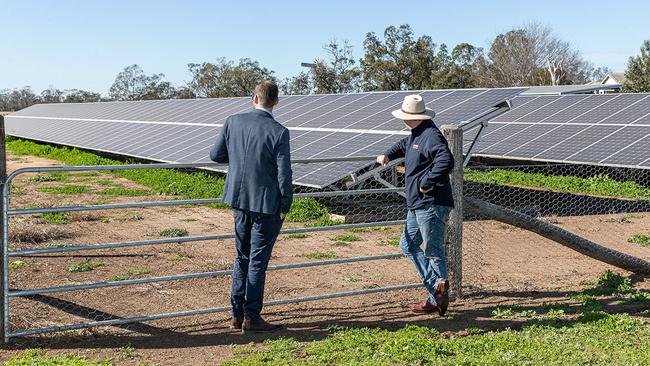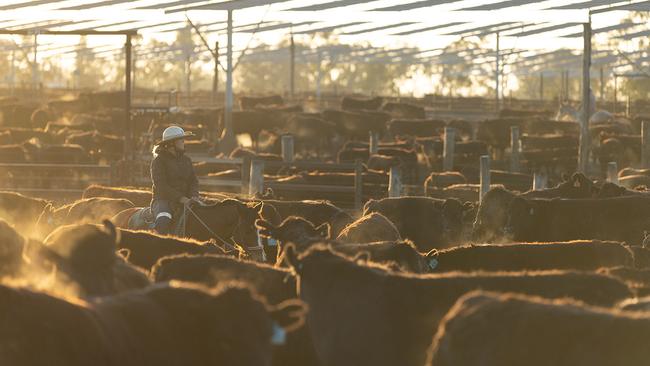Agribusiness’s innovative move forward
One agribusiness’s bold step towards a sustainability-minded future is providing a model for others along the way.

Stockyard Beef continues to take bold steps towards a sustainability-minded future.
In feedlots, pens and paddocks across Queensland, Stockyard Beef provides a model for companies seeking new opportunities through sustainability-minded initiatives.
Almost three years ago, the premium beef producer entered into a Sustainability-Linked Loan (SLL) with the Commonwealth Bank of Australia (CBA). The SLL is a funding arrangement that ties its rate to performance against a series of clearly defined metrics linked to sustainability.
CBA’s SLL was a first for Australia’s agribusiness industry. Stockyard chief executive officer Lisa Sharp says it has been one of the key drivers of change for the business.
“Entering into this loan was the catalyst for defining our metrics and being able to sensibly and cost-effectively measure and baseline our emissions,” Ms Sharp says.
“Having established how we would measure and having set our benchmark is what really propelled us to significantly reduce our emissions each year.”
CBA executive general manager, regional & agribusiness, Paul Fowler says the bank recognises that economic and environmental outcomes can go hand in hand and that the insights shared by Stockyard’s experience demonstrate the value of sustainable finance to CBA’s broader Business Banking customer base.

“We were delighted to hear Stockyard’s positive feedback about the SLL in supporting organisational alignment around their material sustainability focus areas, which has positioned their business favourably in the face of accelerating sustainability data demands within supply chains. We see this as a great case study of how sustainable finance can play a part to support our clients in creating lasting business value, and we hope to do more transactions like this, both with our agri and non-agri clients.”
Behaviour change
Typically, sustainable financing aligns the costs of borrowing to stretching targets related to environmental or social sustainability. If borrowers meet their targets, they may receive a financial benefit, and if they fall short, they may be penalised.
Ms Sharp says Stockyard’s SLL with CBA means environmental sustainability-based metrics, such as achieving a reduction in emissions intensity, draw just as much attention as other key performance indicators at an executive and board level.
Demonstrating progress against environment sustainability metrics has also been useful information to pass on to Stockyard’s suppliers and customers.
“When you’re having an executive meeting or a board discussion and these types of results sit alongside broader financial performance, it really sharpens the focus,” Ms Sharp says.
“We export more than 80 per cent of the beef we produce. When we surveyed the Australian and international markets, 17 out of 19 of our customers told us progress towards environmental sustainability is critically important.”

Potential energy
In recent years, Stockyard pursued a range of initiatives contributing to a reduction in emissions intensity, such as net feed intake and methane supplement trials.
These initiatives included a comprehensive energy audit, resulting in the producer commencing a project this year to extend its existing solar infrastructure to fuel 60 to 70 per cent of its energy requirements.
“Some initiatives have been straightforward, others are more fulsome integrated renewables projects,” Ms Sharp says. “But again for us, working with CBA has helped us achieve those stretching targets and continue to make progress.
“When we look at our research and development and our innovation, the SLL has really helped us prioritise those initiatives.”
Ms Sharp says progress against sustainability targets provides a positive message to share with end users, and, in a world where climate-related financial disclosures are required more often, it helps to have the data readily available.
“We will be illustrating our performance with respect to reductions in emissions intensity and be able to point to initiatives such as our SLL,” Ms Sharp adds.
Best practice
From January 2025, mandatory climate-related financial reporting is expected to be phased in for many large organisations. Businesses that meet the criteria will be expected to report to the Australian Securities and Investment Commission regarding their governance, strategy, risk-management metrics, and targets related to climate change.

Ms Sharp says another benefit of sustainability-linked financing is that it gives the company trusted data verified by a third party.
Stockyard’s success provides a model for medium- and large-sized businesses in all industries, including agribusiness.
“CBA has been quite flexible around adapting to suit our sector,” Ms Sharp says. “We've really been able to see over the life of the Sustainability-Linked Loan that there are opportunities to look at metrics and refine metrics.
“We now have a set of data, which is incredibly helpful when we’re talking to shareholders and other customers. When you undertake a Sustainability-Linked Loan and you’re successful in achieving those targets, there are lower costs of financing. But critically, you also have verified claims.”
“The Australian beef industry enjoys a wonderful reputation. And if we amplify that through verified green credentials with third-party assurance, it can really drive some great value.”
DISCLAIMER:
Any opinions, views of contributors, conclusions or recommendations are reasonably held or made, based on the information available of compilation, but no representation or warranty, either express or implied, is made or provided as to the accuracy, reliability or completeness of any statement made in this information. You should consider whether this product is appropriate for you. Applications for finance are subject to the Bank’s normal credit approval.
Full terms and conditions are included in the loan offer. Bank fees and charges may apply.
Commonwealth Bank of Australia ABN 48 123 123 124 AFSL 234945


